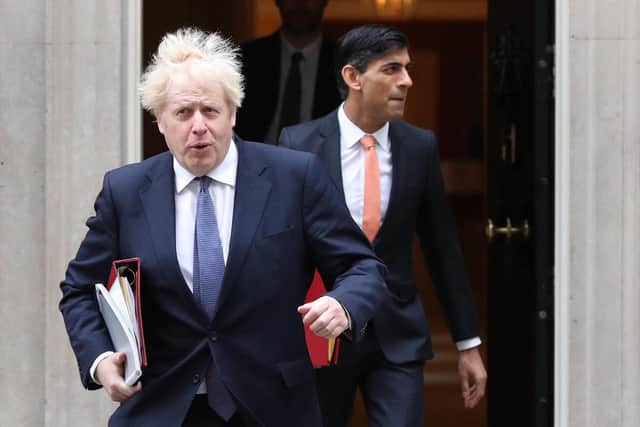2020 was worst year on record for UK Government transparency, new report claims
The report, ‘Access Denied: the UK Government attack on Freedom of Information’ from openDemocracy, also highlights practices used by the UK Government such as relying on a public interest loophole to delay responding to requests.
It also outlines how special advisers play a key role in vetting responses to requests prior to their release in at least five government departments.
Advertisement
Hide AdAdvertisement
Hide Ad

Whitehall’s worst department for responding to FOIs is the Foreign Office, the report states, with just 17 per cent of responses receiving a full response.
However, the Cabinet Office labelled the report “complete nonsense”, claiming many of the practices listed by the report as being anti-transparency are in line with the Freedom of Information Act (FOIA).
Peter Geoghegan, editor-in-chief of openDemocracy, said: “The UK Government is waging a secret war against Freedom of Information. And it is winning. This concerns us all because government secrecy is toxic.
"If left unchecked, it can conceal incompetence and corruption. And the bottom line is that politicians spending public money should not hide their actions from the public.”
The report includes evidence of a “public interest loophole” that sees government departments using a part of the FOI Act to delay responding if they need time to consider the public interest test.
The report alleges this is being used to delay responding in full without any effective consideration of the public interest test.
It also contains the revelation the Cabinet Office’s much criticised ‘clearing house’ processes requests with “high political sensitivity” and “significant wider interest”, effectively acting as an early warning system for public interest disclosures under FOI, raising concerns about secrecy.
This has taken place with requests around the Grenfell Tower tragedy and the infected blood scandal.
Advertisement
Hide AdAdvertisement
Hide AdResponding to the report, the Cabinet Office said it did not accept that a metric based on the percentage of FOI requests granted was representative of the level of transparency in government, and criticised the report’s reliance on what it said is old data.
It added that many exemptions are appropriately used by government in line with the FOIA, and that the Cabinet Office’s role with the Clearing House has been transparent.
The department added that the criticism around the involvement of special advisers is also misplaced, stating they are allowed to provide advice and assistance on any aspect of government business, including responses to Freedom of Information requests.
A Cabinet Office spokesperson said: “This report is complete nonsense. It shows a total misunderstanding of the FOI Act and government processes, while misleading readers with outdated statistics.
“As the public would expect, during 2020 government departments were dealing with an unprecedented pandemic. The focus was on saving lives and the NHS, and as the independent Information Commissioner's Office recognised this left fewer resources available to deal with FOI requests."
The Scottish Government has also faced criticism in the past for its FOI handling, with the Scottish Information Commissioner intervening in 2017 due to evidence requests from journalists faced additional checks and scrutiny than requests from members of the public.
A message from the Editor:
Thank you for reading this article. We're more reliant on your support than ever as the shift in consumer habits brought about by coronavirus impacts our advertisers.
If you haven't already, please consider supporting our trusted, fact-checked journalism by taking out a digital subscription.
Comments
Want to join the conversation? Please or to comment on this article.
